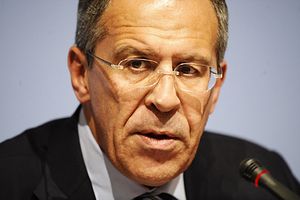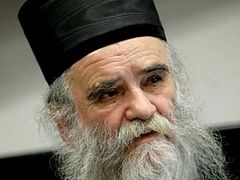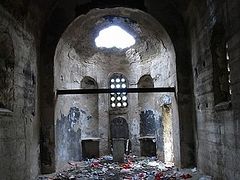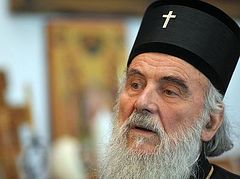Sarajevo, September 30, 2014
 Russian Foreign Minister Sergei Lavrov
Russian Foreign Minister Sergei Lavrov
Moscow has opposed any NATO extension to former communist areas of eastern and southeastern Europe, part of a competition for geo-strategic influence since the end of the Cold War that sits at the heart of the current conflict in ex-Soviet Ukraine.
Montenegro, Macedonia and Bosnia share an ambition to join the Western military alliance, following in the footsteps of Albania and ex-Yugoslav Croatia, which became members in 2009.
Asked about the integration of the three into NATO, Russian Foreign Minister Sergei Lavrov told the Bosnian daily Dnevni Avaz: "With regards to the expansion of NATO, I see it as a mistake, even a provocation in a way.
"This is, in a way, an irresponsible policy that undermines the determination to build a system of equal and shared security in Europe, equal for everyone regardless of whether a country is a member of this or that bloc."
Russia has energy interests in the Balkans and historical ties with the Slavs of the region, many of them Orthodox Christian like the Russians. But Moscow's influence has waned as the countries of the former Yugoslavia seek to join the European mainstream with membership of the EU and NATO.
The tiny Adriatic republic of Montenegro appears closest to NATO accession. Bosnia's bid is hostage to ethnic bickering that has slowed reforms, while Macedonia remains blocked by a long-running dispute with neighbouring Greece over the name of the landlocked country.
Only Serbia, perhaps Russia's closest ally in the region, is not actively pursuing membership of NATO given political sensitivities lingering since the alliance's 1999 air war against then-strongman Serbian President, Slobodan Milosevic to halt a wave of atrocities against ethnic Albanians in Kosovo.
Mr Lavrov confirmed that Russian President Vladimir Putin would visit Serbia in mid-October to mark the 70th anniversary of Belgrade's liberation from Nazi.



